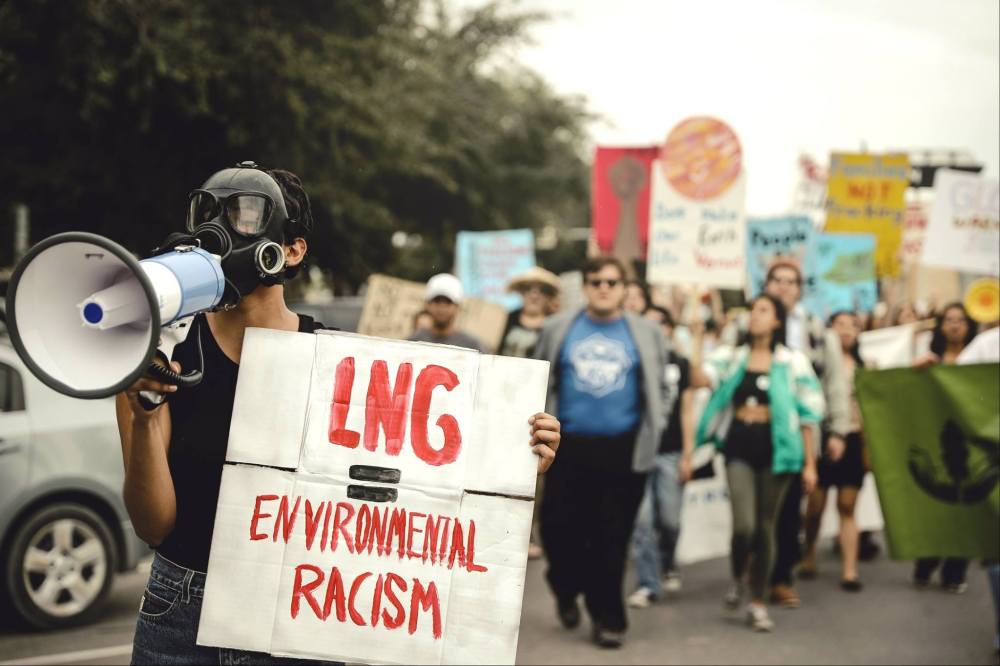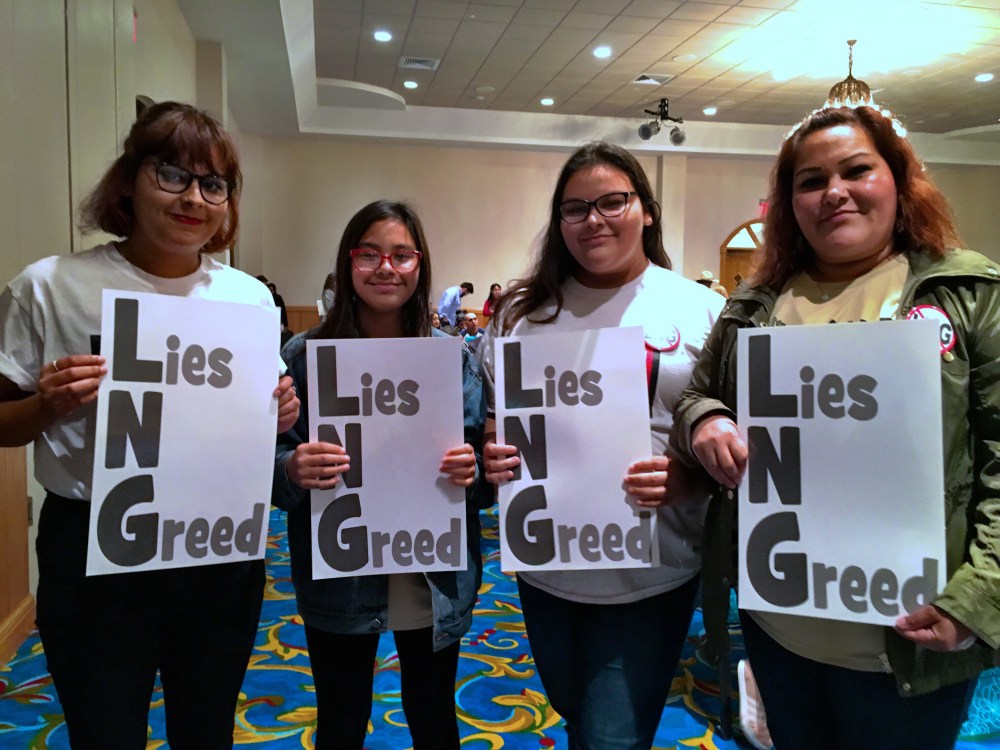
LNG and SpaceX should not be neighbors
For the last four years, the Save RGV from LNG coalition, and partner organizations in South Texas have been organizing to prevent the permitting and construction of three proposed liquefied natural gas (LNG) export terminals: Rio Grande LNG, Texas LNG, and Annova LNG and pipelines. These LNG terminals are slated to put Port Isabel, TX, and surrounding communities in harm’s way. While they pose a highly flammable risk on their own, these LNG terminals are also being proposed to be built between 4-6 miles from Elon Musk’s SpaceX launch facility which is already under construction. For the last year, the Federal Energy Regulatory Commission (FERC) has been assessing the likelihood that LNG terminals and pipeline flammable gases will ignite with a mere SpaceX rocket launch and cause a catastrophic explosion in Port Isabel area communities. The severity of this concern has prompted news outlets to report on the LNG terminals and SpaceX potential safety risks and hazards.

This flourishing No LNG movement in South Texas is led by an indigenous tribe, low-income communities, people of color organizers, conservation groups, city officials, eco-tourism businesses, and international organizations. They are active in solidarity with the Carrizo Comecrudo Tribe of Texas and are organizing to protect indigenous sacred sites that could be destroyed by one of the LNG companies. This hard-working movement has resulted in the 8th largest global bank to divest from LNG, numerous anti-LNG city resolutions, the local school district to twice reject tax abatements for LNG companies, and growth in international opposition to fracking. In fact, all of the communities that are located near the SpaceX facility and proposed LNG sites have passed anti-LNG city resolutions and have intervened in the company permit applications. Forcing these residents to live each day near LNG terminals that they do not want is outrageous. Expecting residents to accept the possibility of a catastrophe should a SpaceX launch ignite the LNG highly flammable gases is appalling.
There is the concern that Mr. Musk is unaware of the flammable hazards of the LNG terminals and their proximity to his SpaceX facility to local populations. In a nationally televised comment earlier this year, Mr. Musk stated that “most likely it’s going to happen at our Brownsville location because we’ve got a lot of land with nobody around, and so if it blows up, it’s cool.” He was referring to the launching of the larger rockets to Mars in Brownsville, an area which he believes lacks a population. Many residents were outraged by this comment.

Community members have been meeting with regulators since the LNG companies filed FERC permit applications at the end of 2016 to make their concerns of LNG and SpaceX’s proximity known. Members of the coalition have met in person with the Coast Guard to discuss the safety hazards of LNG tanker ships transporting massive quantities of the highly flammable liquefied natural gas near SpaceX and have sent more than a hundred public comments expressing their fears. They have sent numerous public comments to the FERC and have gone above and beyond to demand answers and transparency from regulators about the safety concerns associated with LNG and SpaceX. It is well documented that since 2016, FERC regulators have been in communication with SpaceX about these concerns, as well.
The Coast Guard has already announced that the three LNG terminals can safely locate near SpaceX even though the not yet public studies only evaluate safety for the smaller rockets. Earlier this year, Mr. Musk and SpaceX announced they plan to launch the larger rockets to Mars from the pad near Brownsville, TX. There is a strong reason to believe that the FERC, often considered a rubber stamp, will approve the LNG company permits to build without addressing the hazards. A member of the coalition has sent a follow-up comment about the Coast Guard’s evaluation to the FERC to demand updated safety studies. The regulators have not given a response.
